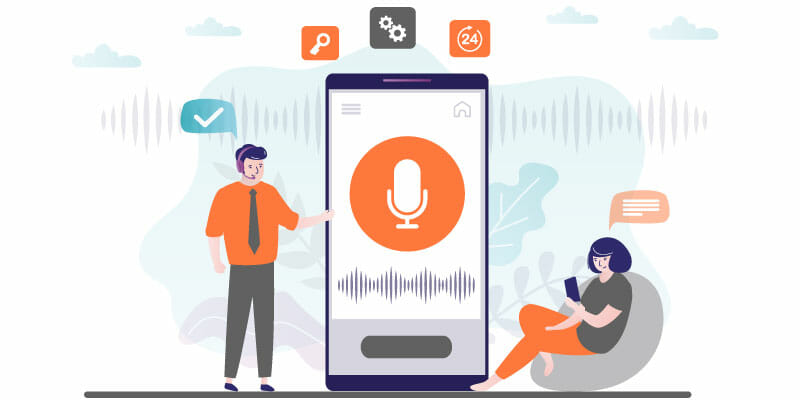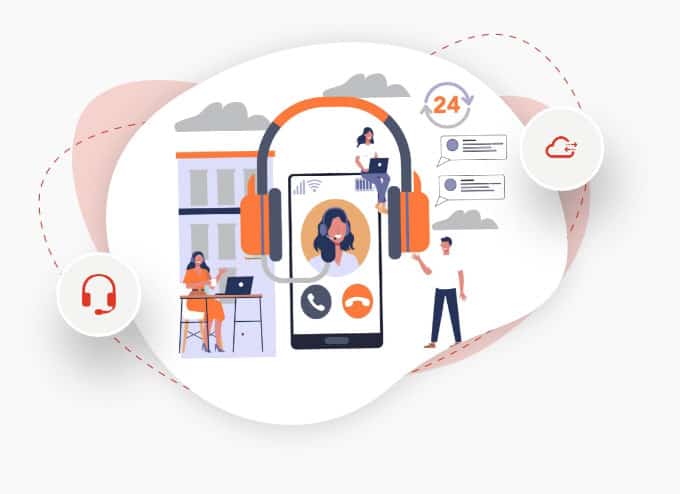
Call routing systems are used to route incoming calls to various destinations. These systems may provide a menu system or allow customers to speak with a customer service representative who goes live. Your company will be able to handle higher volumes of calls while decreasing customer waiting time with call routing. The right telephone system is critical for running a successful business. With auto-attendant and IVR services, it is possible to provide similar functions, but there are significant differences between them. Let us discuss.
IVR (Interactive Voice Response) systems reduce the number of customer calls that need to be answered. IVR can be of great benefit to your company. Callers can enter commands into the phone using the touch-tone keypad or by speaking them into the phone, and the company will receive the information they need.
An auto attendant is replaced by Interactive Voice Response (IVR), as they lack voice recognition technology which provides a high interaction. The auto-attendant is a fantastic telephone system, but Interactive Voice Response is superior technology. If an Interactive Voice Response (IVR) system is used properly, a customer will receive a prompt and informative response and save time.
An interactive voice response system (IVR) will collect customer information and route them to an agent to take care of the situation. IVR systems can recognize multiple words simultaneously, providing a prompt response for customers. You can significantly reduce customer service costs by using an interactive voice response system. An IVR system empowers customers to manage their affairs, which leads to an improvement in overall customer service and a reduction in waiting time.
Who Is An Auto Attendant?
The Auto Attendant is used to answer callers without a receptionist. It is a professional voice-over recording that helps callers connect with the party or department they wish to speak with. With a little forethought and the help of an automated answering service, you can prevent callers from having a similar experience.
An Auto Attendant gives your company a distinctive audio signature, but it only performs a few simple tasks. When a receptionist is unavailable, an automated answering service can connect callers with the proper department or party. Using an Auto Attendant can perform a few simple tasks, but an IVR system can reduce the number of customer calls that need to be answered. In such cases, you need the help of an expert unified communication service provider India to get the task done without much hassles.

Interactive voice response and automatic attendants may provide similar capabilities and perform functions, but can have significant differences. Interactive Voice Response (IVR) is a more intelligent version of an auto-attendant, and the need for it includes:
Conclusion
Auto Attendant and Interactive Voice Response (IVR) are two similar systems. However, the Interactive Voice Response (IVR) system is more intelligent than the standard auto attendant and provides a high level of interaction.